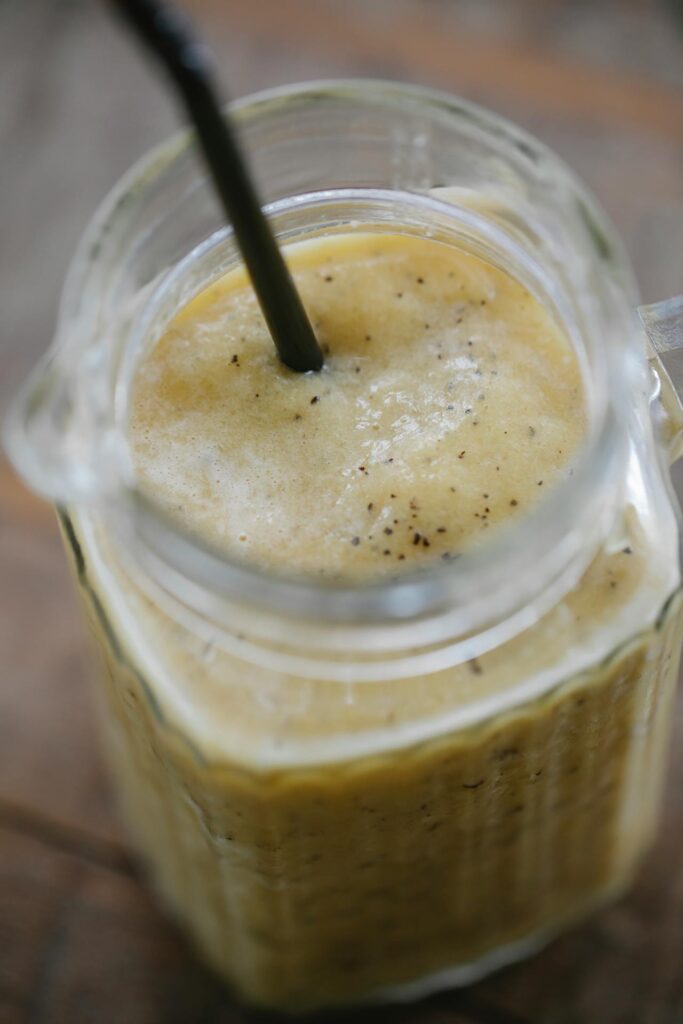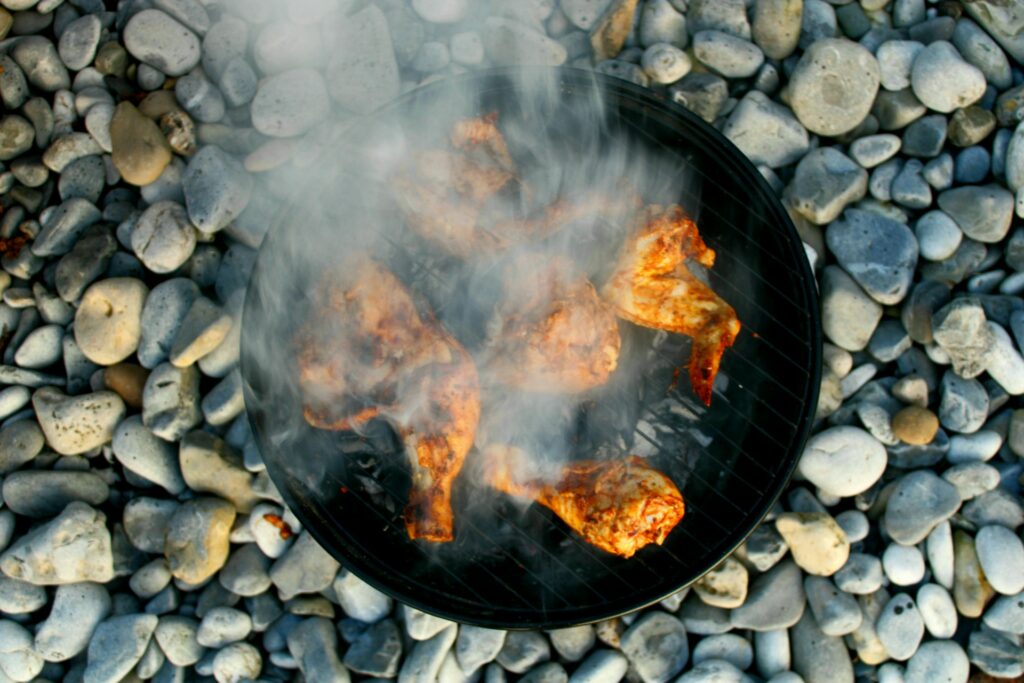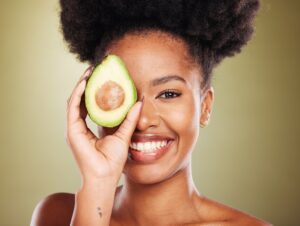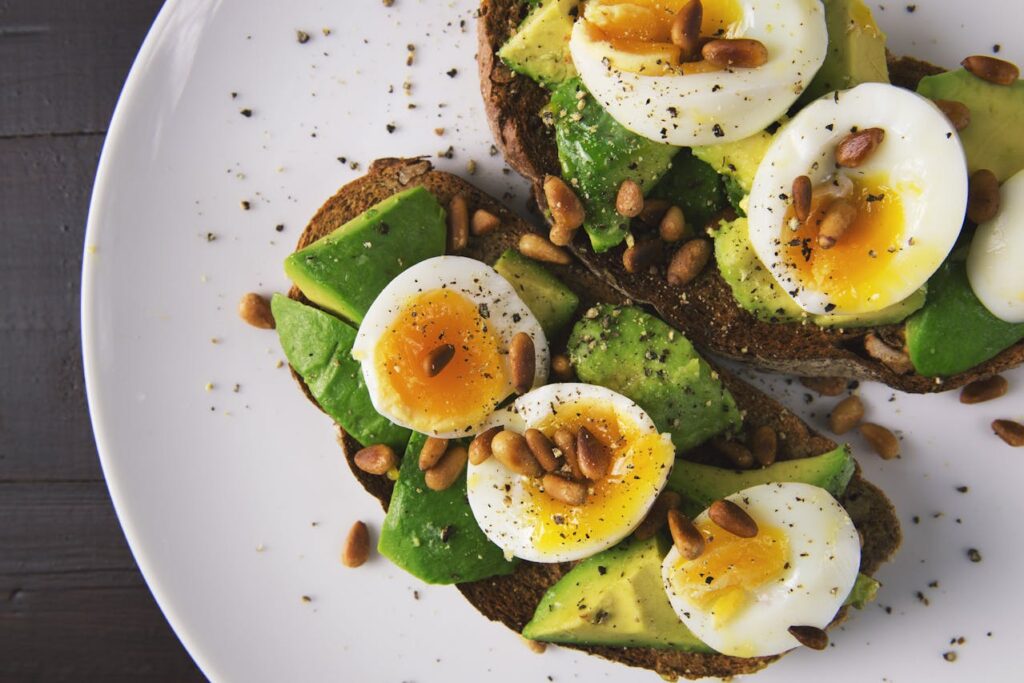Doing research for this article made me realize how much more I needed to know about protein. What I once thought of as a simple nutrient has turned out to be far more layered, and my own awareness is still shifting. I see now how protein is of optimal importance—central to healing and energy—yet often pushed into the background of our diets.
Protein is built from amino acids, small compounds that link together like beads. Some of your body can make, but nine of them must come from food. Without them, healing slows, muscles weaken and mood and energy can falter. Proteins make up collagen for skin, keratin for hair, hormones that carry signals, enzymes that spark digestion and antibodies that fight disease. They are not the force of life itself, but they are part of the design that allows life to keep moving as it should.
So how much do we need? Conventional medicine sets the baseline at 0.8 grams per kilogram of body weight. For someone 150 pounds, that’s about 55 grams a day—the amount in a chicken breast, a cup of Greek yogurt and a handful of almonds, for someone 120 pounds, about 45 grams—two eggs at breakfast, a cup of lentils at lunch, and a small piece of fish at dinner. It doesn’t sound like much, yet most Americans exceed the recommended amount; a 2025 IFIC survey found that more than 60% are already eating above the baseline, often without realizing it. Naturopathic doctors argue that the baseline is a floor, not the goal, and that older adults, athletes, or those under stress may thrive on closer to one gram per kilogram or more.
A balanced plate makes this visible: half vegetables, a quarter whole carbohydrates like rice or sweet potatoes and a quarter protein. That protein could be salmon, lentils, hempseed sprinkled on salad, tofu, or chicken. The point is consistency, not excess.
The beauty of protein is the variety of whole foods that carry it. On the animal side, there are eggs, wild-caught fish, organic chicken and grass-fed beef. Dairy—like kefir, cottage cheese, and Greek yogurt—delivers protein with probiotics and minerals. Plants are just as abundant: lentils, black beans, chickpeas, quinoa, soy, edamame, hempseed, chia, pumpkin seeds, almonds and walnuts. Even vegetables like broccoli, peas and spinach add meaningful amounts. Spirulina, a blue-green algae, is one of the densest protein sources on earth. Seeing it this way, protein is not a narrow or boring requirement—it is spread across creation in countless forms.

This is where the debate begins. Mainstream dietitians often point to animal protein as the “complete” source, containing all essential amino acids in highly digestible form. Athletes and patients healing from surgery are frequently guided toward it for quick and reliable recovery. Plant-based advocates argue the opposite: that animals get protein from plants, so why not go directly to the source? Foods like hempseed, quinoa, soy and lentils deliver protein, fiber and antioxidants that animal foods lack.
Then there’s the issue of modern meat. Much of what fills supermarket shelves is no longer what it once was. Industrial farming depends on hormones, antibiotics, and pesticide-heavy feed. A 2021 Nature Food study found residues of these chemicals in commercial meat, raising real concerns about long-term health. Instead of being purely nourishing, today’s meat often carries toxins or inflammatory compounds. That is why naturopathic doctors frequently steer people toward organic, grass-fed, or wild-caught animal protein—or toward plants altogether.
And around all of this, there’s the business of protein itself. The global market for powders and bars was worth $28 billion in 2024 and is expected to double in less than a decade. Many of these products are ultra-processed, spiked with fillers or artificial sweeteners, and sometimes contaminated with heavy metals. “Not all protein powders are created equal,” warns naturopathic doctor Alan Christianson. Whole foods—beans, eggs, yogurt, nuts, clean meats—still provide the safest and richest nutrition.
Protein matters, but too much can backfire. Supplement overload can strain the kidneys in vulnerable people, produce nitrogen waste and crowd out other nutrients. Meanwhile, the obsession with protein often causes us to forget fiber, which most Americans fall short on, though it is just as vital for heart and gut health.

Protein, then, should not be idolized, nor should it be ignored. It is one of the provisions that allow our bodies to repair, grow and remain steady. Some will trust meat, others lentils and hempseed. Both sides can agree: without enough protein, the body falters.
So whether it’s salmon or spirulina, yogurt or chickpeas, the message is simple. Let protein be part of your plate every day—not in excess, not lost in hype, but steady, balanced, and trustworthy. Wherever you choose to find it—plants, animals, or both—protein is the quiet thread that holds your health together.”











